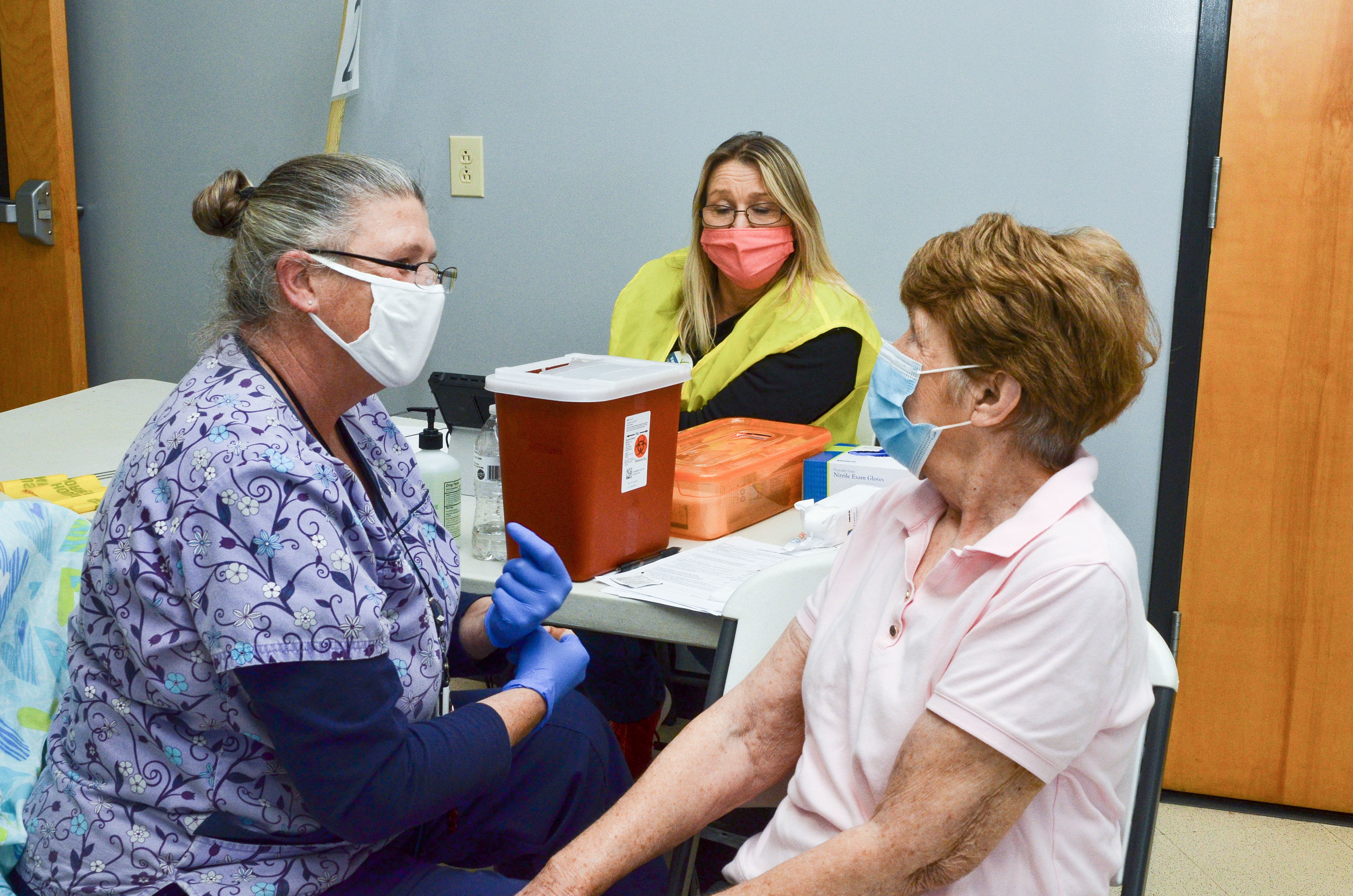
Granville Vance Public Health is coordinating with the North Carolina Department of Health Human Services (NCDHHS) as NCDHHS leads COVID-19 monitoring and preparedness efforts for the state. The health and safety of our community is our number one priority. Granville Vance Public Health (GVPH) wants to make sure that our community has accurate information to help prevent novel Coronavirus Disease 2019 (COVID-19).
The NCDHHS COVID-19 Dashboard has the most up-to-date information about COVID-19 cases and vaccines given across our health district. The cases, cases demographics, and vaccinations dashboards can all be viewed by county. For up-to-date information about COVID-19 cases around the world, check out the 2019 Novel Coronavirus Interactive Global Dashboard.
Coronavirus Disease 2019 (COVID-19) is a disease that was identified in late 2019 and was declared a pandemic on March 11, 2020. COVID-19 is an international, national and North Carolina public health emergency. There are some common sense measures everyone can take to protect themselves and others from the spread of respiratory illnesses like COVID-19. These recommendations do not change based on COVID-19 Community Levels.
Symptoms of COVID-19 are fever, cough, shortness of breath or difficulty breathing, chills, repeated shaking with chills, muscle pain, headache, sore throat, new loss of taste or smell, fatigue, congestion or runny nose, nausea or vomiting and diarrhea. Symptoms may appear 2-14 days after exposure.
For information about where to get tested, go to NC DHHS Find My Testing Place.
Helping people know if they have COVID-19 or may have been exposed is critical to ensuring they have the resources and support they need and informs when and how we can responsibly ease restrictions. You should get tested if you:
Most people who get COVID-19 recover without needing medical care. If you are experiencing severe, life threating symptoms (for example, severe difficulty breathing, altered thinking, blue lips), seek immediate medical care or call 9-1-1.
For information about where to get tested,
go to NC DHHS Find My Testing Place.
The NC Department of Health and Human Services (DHHS) and the Governor’s Task Force have provided information and mitigation guidance for all North Carolinians to take proactive steps to protect the health of our state as the number of COVID-19 cases increase. For more information, please visit the following links for detailed information for specific groups.
GVPH continues to work closely with our partners across Granville and Vance counties including hospitals, private providers, school systems, community health centers, senior centers, county and city governments, churches, and many others to provide education and guidance regarding mitigation efforts.
North Carolina is offering a number of additional resources to support individuals during these challenging times.
Even if you do not have underlying chronic conditions, everyone can take action to keep their body resilient and healthy. See some tips to stay healthy, including quitting smoking and keeping your diabetes under control.
The Division of Mental Health Developmental Disabilities and Substance Abuse Services in partnership with the NCDHHS Historically Marginalized Populations Behavioral Health Workgroup, created a COVID-19 Community Readiness Toolkit which includes resources through the state of North Carolina for a variety of mental health needs, including resources for parents engaging in online-school, family-based needs, resources for those within the I/DD community and others.
During an outbreak like COVID-19, it is not uncommon for people to experience feelings of fear, depression, or anxiety. If you or a loved one are struggling, NC DHHS lists a number of resources in North Carolina that can provide support including the Hope4NC Helpline (1-855-587-3463) which connects individuals to additional mental health and resilience supports to help you cope and build resilience during times of crisis.
For food access, shelter and more, call 2-1-1 or 888-892-1162. There are a number of programs offering additional assistance. For more information, see the following:
Legal Aid NC also has a library of resources related to housing, education, health insurance, employments, benefits, and other needs.
Lisa Harrison, Granville Vance Public Health Director, has issued a number of press releases with additional information about COVID-19 in our communities, the health department’s response, and guidance to prevent spread of the virus.
For questions and concerns about coronavirus (COVID-19), call the statewide Coronavirus Helpline 24 hours a day, 7 days a week.
